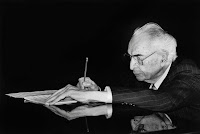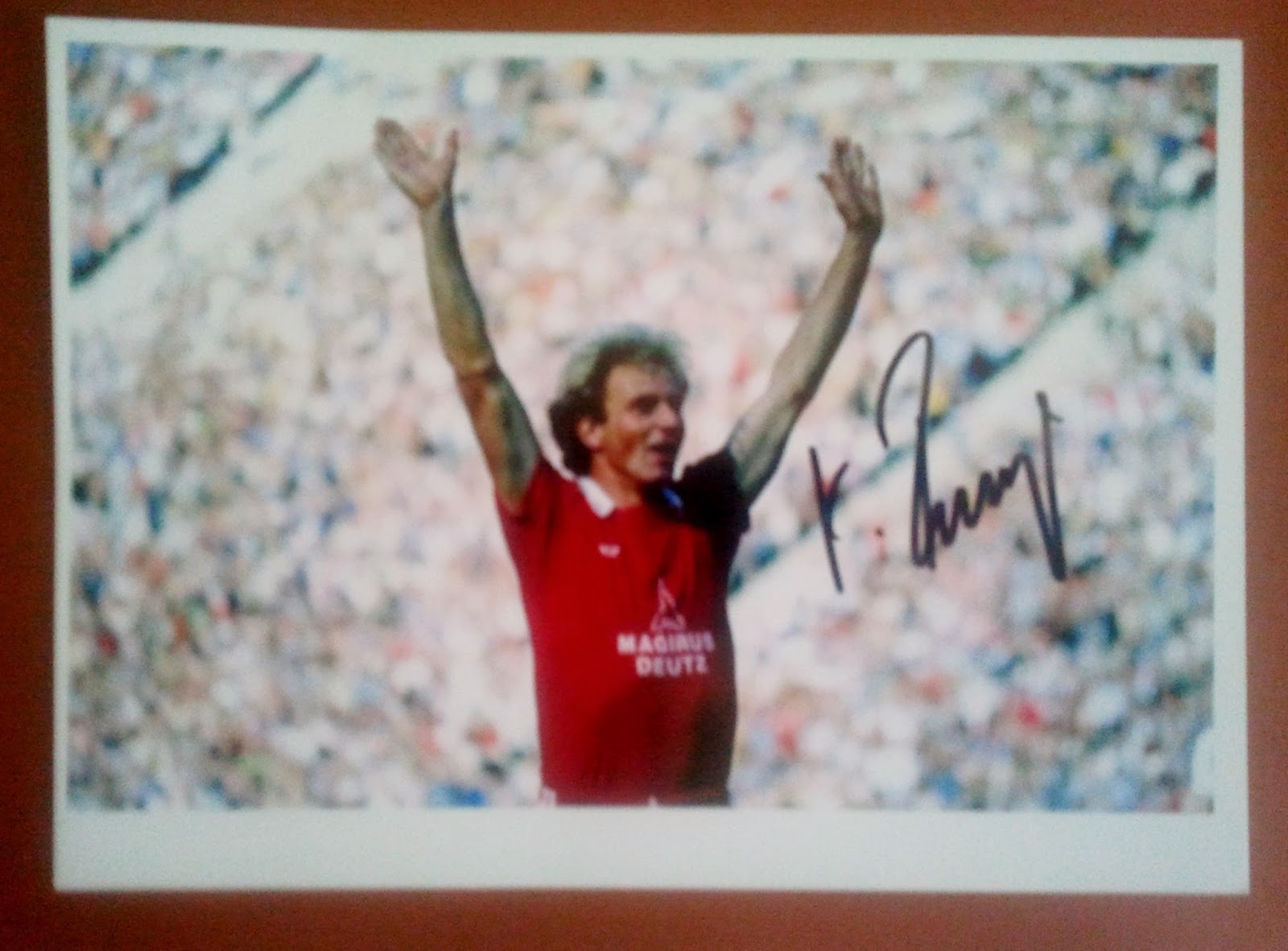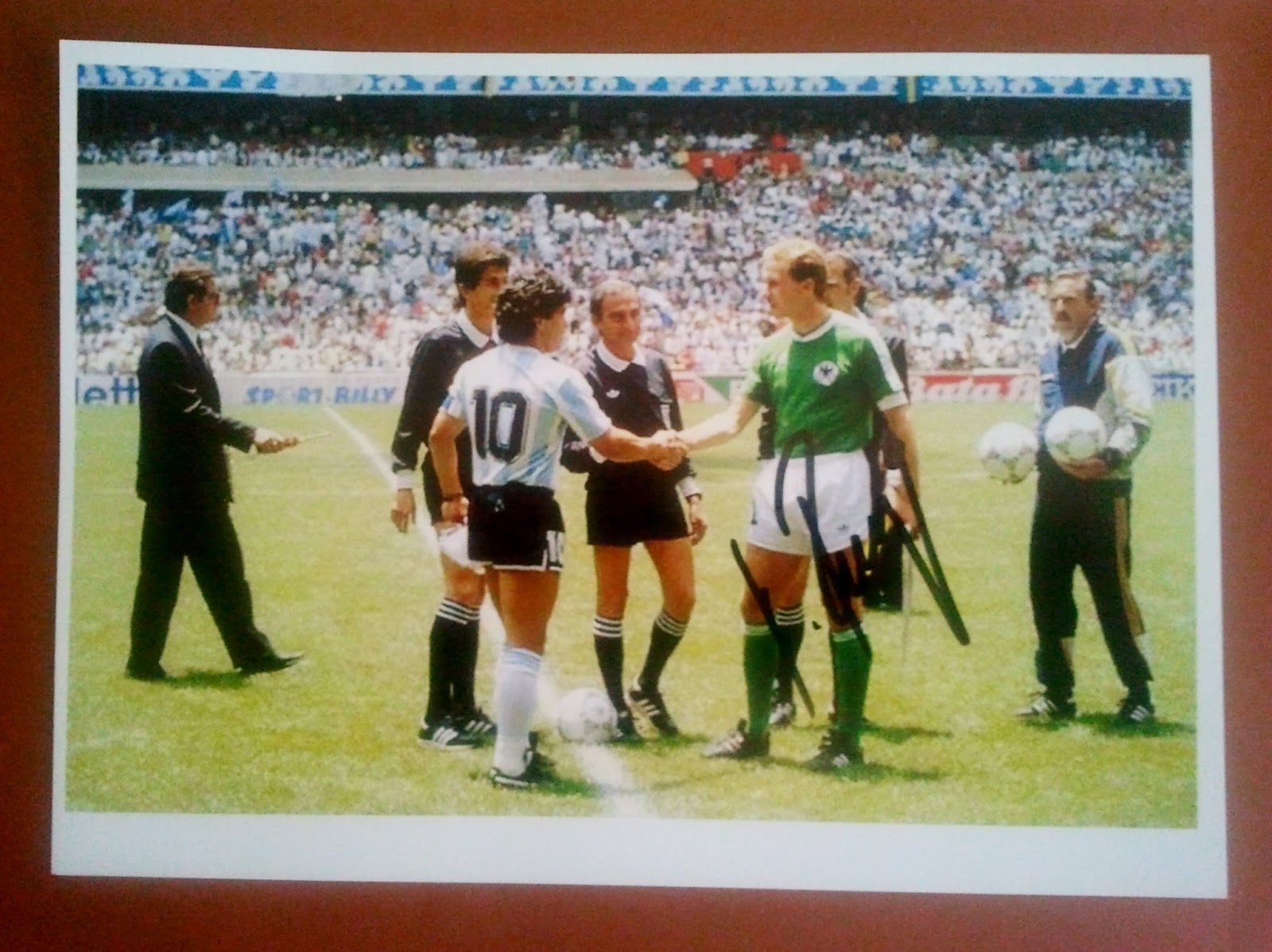David Warren "Dave" Brubeck (born December 6, 1920)
is an American
jazz pianist. He has written a number of jazz standards, including "In Your Own Sweet Way" and "The Duke". Brubeck's style ranges from refined to bombastic, reflecting his mother's attempts at
classical training and his
improvisational skills. His music is known for employing unusual
time signatures, and superimposing contrasting rhythms,
meters, and
tonalities.
His long-time musical partner, alto
saxophonist Paul Desmond, wrote the
Dave Brubeck Quartet's best remembered piece, "
Take Five",
which is in 5/4 time and has endured as a jazz classic on the top-selling jazz album,
Time Out.
Brubeck experimented with
time signatures throughout his career, recording "Pick Up Sticks" in 6/4, "
Unsquare Dance" in 7/4, and "
Blue Rondo à la Turk" in 9/8. He is also a respected composer of orchestral and
sacred music, and wrote soundtracks for television such as
Mr. Broadway and the animated
mini-series This Is America, Charlie Brown.

Brubeck was born in
Concord, California and grew up in
Ione. He is of
English (maternal) and
Swiss (paternal) ancestry
His father, Howard "Pete" Brubeck, was a
cattle rancher, and his mother, Elizabeth (née Ivey), who had studied piano in England under
Myra Hess and intended to become a
concert pianist, taught piano for extra money.
Brubeck originally did not intend to become a musician (his two older brothers, Henry and Howard, were already on that track), but took lessons from his mother. He could not read
sheet music during these early lessons, attributing this difficulty to poor eyesight, but "faked" his way through, well enough that this deficiency went mostly unnoticed.

Intending to work with his father on their ranch, Brubeck entered the College of the Pacific (now the
University of the Pacific) studying
veterinary science, but transferred on the urging of the head of
zoology, Dr Arnold, who told him "Brubeck, your mind's not here. It's across the lawn in the
conservatory. Please go there. Stop wasting my time and yours."
Later, Brubeck was nearly expelled when one of his professors discovered that he could not read music. Several of his professors came forward, arguing that his ability with
counterpoint and
harmony more than compensated. The college was still afraid that it would cause a scandal, and agreed to let Brubeck graduate only after he promised never to teach piano.

After graduating in 1942, Brubeck was
drafted into the army and served overseas in
George Patton's
Third Army. He was spared from service in the
Battle of the Bulge when he volunteered to play piano at a
Red Cross show; he was such a hit he was ordered to form a band. Thus he created one of the U.S. armed forces' first
racially integrated bands, "The Wolfpack".
While serving, Brubeck met
Paul Desmond in early 1944.
He returned to college after serving nearly four years in the army, this time attending
Mills College and studying under
Darius Milhaud, who encouraged him to study
fugue and
orchestration, but not classical piano. While on active duty, he received two lessons from
Arnold Schoenberg at
UCLA in an attempt to connect with High Modernism theory and practice.
However, the encounter did not end on good terms since Schoenberg believed that every note should be accounted for, an approach which Brubeck could not accept.

After completing his studies under Milhaud, Brubeck helped to establish
Berkeley, California's
Fantasy Records. He worked with an
octet (the recording bears his name only because Brubeck was the best-known member at the time), and a
trio including
Cal Tjader and
Ron Crotty. Highly experimental, the group made few recordings and got even fewer paying jobs. The trio was often joined by Paul Desmond on the
bandstand, at Desmond's prodding.
Following a near-fatal swimming accident which incapacitated him for several months, Brubeck organized The Dave Brubeck Quartet in 1951, with Desmond on saxophone. They took up a long residency at San Francisco's
Black Hawk nightclub and gained great popularity touring
college campuses, recording a series of albums with such titles as
Jazz at Oberlin (1953),
Jazz at College of the Pacific (1953), and Brubeck's debut on
Columbia Records,
Jazz Goes to College (1954). In that same year, he was featured on the cover of
Time magazine, the second jazz musician to be so honored (the first was
Louis Armstrong on February 21, 1949.
Early bassists for the group included Ron Crotty, Bob Bates, and Bob's brother
Norman Bates; Lloyd Davis and Joe Dodge held the drum chair. In 1956, Brubeck hired
Joe Morello, who had been working with
Marian McPartland; Morello's presence made possible the rhythmic experiments that were to come. In 1958
Eugene Wright joined for the group's
U.S. State Department tour of Europe and Asia; Wright would become a permanent member in 1959, making the "classic" Quartet's personnel complete.

Wright is African-American; in the late 1950s and early 1960s Brubeck canceled several concerts because the club owners or hall managers resisted the idea of an integrated band on their stages. He also canceled a television appearance when he found out that the producers intended to keep Wright off-camera.
In 1959, the Dave Brubeck Quartet recorded
Time Out, an album their label was enthusiastic about but nonetheless hesitant to release. Featuring the album art of
S. Neil Fujita, the album contained all original compositions, almost none of which were in
common time: 9/8, 5/4, 3/4, and 6/4 were used. Nonetheless, on the strength of these unusual time signatures (the album included "Take Five", "Blue Rondo à la Turk", and "Three To Get Ready"), it quickly went
platinum.
Time Out was followed by several albums with a similar approach, including
Time Further Out: Miro Reflections (1961), using more 5/4, 6/4, and 9/8, plus the first attempt at 7/4;
Countdown: Time in Outer Space (dedicated to
John Glenn) (1962), featuring 11/4 and more 7/4; and
Time Changes (1963), with much 3/4, 10/4 (which was really 5+5), and 13/4. These albums were also known for using contemporary paintings as cover art, featuring the work of
Joan Miró on
Time Further Out,
Franz Kline on
Time in Outer Space, and
Sam Francis on
Time Changes.

A high point for the group was their 1963 live album
At Carnegie Hall, described by critic
Richard Palmer as "arguably Dave Brubeck's greatest concert".
In the early '60s, Brubeck and his wife Iola developed a jazz musical,
The Real Ambassadors, based in part on experiences they and their colleagues had during foreign tours on behalf of the U.S. State Department. The soundtrack album, which featured
Louis Armstrong,
Lambert, Hendricks & Ross, and
Carmen McRae was recorded in 1961; the musical itself was performed at the 1962
Monterey Jazz Festival.
At their peak in the early '60s, the Brubeck Quartet was releasing as many as four albums a year. Apart from the 'College' and the 'Time' series, Brubeck recorded four
LPs featuring his compositions based on the group's travels, and the local music they encountered.
Jazz Impressions of the USA (1956, Morello's debut with the group),
Jazz Impressions of Eurasia (1958),
Jazz Impressions of Japan (1964), and
Jazz Impressions of New York (1964) are less well-known albums, but all are brilliant examples of the quartet's studio work, and they produced Brubeck standards such as "Summer Song," "Brandenburg Gate," "Koto Song," and "Theme From
Mr. Broadway." (Brubeck wrote, and the Quartet performed, the theme song for the
Craig Stevens CBS drama series; the music from the series became material for the "New York" album.)

In 1961 Dave Brubeck appeared in a few scenes of the British Jazz/Beat film
All Night Long, which starred
Patrick McGoohan and
Richard Attenborough. Brubeck merely plays himself, and his piano playing includes closeups of his fingerings. Brubeck performs "It's a Raggy Waltz" from the
Time Further Out album and duets briefly with bassist
Charles Mingus in "Non-Sectarian Blues".
In the early 1960s Dave Brubeck was the program director of WJZZ-FM radio (now
WEZN). He achieved his vision of an all jazz format radio station along with his friend and neighbor John E. Metts, one of the first African Americans in senior radio management.
The final studio album for Columbia by the Desmond/Wright/Morello quartet was
Anything Goes (1966) featuring Cole Porter songs. A few concert recordings followed, and
The Last Time We Saw Paris (1967) was the "Classic" Quartet's swansong.
Brubeck's disbanding of the Quartet at the end of 1967 allowed him more time to compose the longer, extended orchestral and choral works that were occupying his attention (to say nothing of Brubeck's desire to spend more time with his family). February 1968 saw the premiere of
The Light in the Wilderness for baritone solo, choir, organ, the
Cincinnati Symphony Orchestra conducted by
Erich Kunzel, and Brubeck improvising on certain themes within. The piece is an
oratorio on Jesus's teachings. The next year, Brubeck produced
The Gates of Justice, a
cantata mixing Biblical scripture with the words of
Dr. Martin Luther King, Jr.

Further works followed, including the 1971 cantata
Truth Is Fallen (now re-issued on CD by Collectables Records
[1]), written in protest of the
Vietnam War, and also dedicated to the memory of the
Kent State shootings and
Jackson State killings of May 1970. The work was premiered in
Midland, Michigan on May 1, 1971 and released on LP in 1972.
Brubeck's jazz playing did not cease. He was quickly prevailed upon by
Newport Jazz Festival producer
George Wein to tour with
Gerry Mulligan. A Brubeck "Trio" was soon formed: Jack Six on bass, and
Alan Dawson on drums. From 1968 until 1973, The Dave Brubeck Trio featuring Gerry Mulligan performed extensively, releasing several concert albums (including one with guest Desmond) and one studio album.
In 1973 Brubeck formed another group with three of his sons,
Darius on keyboards, Dan on drums, and
Chris on electric bass or
bass trombone. This group often included
Perry Robinson,
clarinet, and
Jerry Bergonzi, saxophone. Brubeck would record and tour with this "Two Generations of Brubeck" group until 1978.

Brubeck and Desmond recorded an album of duets in 1975, then the Classic Quartet reassembled for a 25th anniversary reunion in 1976. Desmond died in 1977.
Brubeck's Quartet has remained vital, a primary creative outlet for the pianist. Bergonzi became a member and remained with the band until 1982. This version featured
Chris Brubeck, and
Randy Jones on drums. Jones joined in 1979 and is still with the band after over 30 years. Replacing Bergonzi was Brubeck's old friend
Bill Smith, who knew Brubeck at Mills College and was a member of Brubeck's Octet in the late 1940s; he remained in the group through the '80s and recorded with it off and on until 1995. The best recording of this Smith/Brubeck/Jones Quartet is probably their remarkable
Moscow Night concert of 1987, released on
Concord Records.
The Quartet currently includes alto saxophonist and
flautist Bobby Militello, bassist
Michael Moore (who replaced
Alec Dankworth), and Randy Jones.
In 1994, Brubeck was inducted into the
Down Beat Jazz Hall of Fame.
Brubeck continues to write new works, including orchestral and
ballet scores. He has worked extensively with the
London Symphony Orchestra and tours about 80 cities each year.

At the 49th
Monterey Jazz Festival in September 2006, Brubeck debuted his commissioned work,
Cannery Row Suite, a
jazz opera drawn from the characters in
John Steinbeck's American classic writing about
Monterey's roots as a
sardine fishing and packing town. Iola (
née Whitlock), Brubeck's wife since 1942, is his personal secretary, manager and lyricist, and co-authored the Cannery Row Suite with Dave. His performance of this as well as a number of jazz standards with his current quartet was the buzz of the Festival (an event Brubeck helped launch in 1958).
Because of his advancing years, Brubeck's touring has naturally decreased in activity. He announced at the end of 2008 that he would no longer tour internationally.
On April 3, 2009, Brubeck was scheduled to play the album
Time Out in its entirety to commemorate its 50th anniversary at the annual Brubeck Festival, but was not able to because of being in hospital with a viral infection. His son Darius filled in on piano with the rest of his quartet.
A scheduled October, 2010 concert in St. Louis, MO was canceled after Brubeck's doctors advised against traveling and performing.
He had a heart problem and was experiencing fatigue and dizziness. His doctors installed a
pacemaker in his heart. His surgery was doing so well that his doctors said that he could resume his concert touring in November. He performed sold out shows at the Blue Note in New York City on Thanksgiving weekend, 2010, celebrating his 90th birthday.
 When England manager Glenn Hoddle took the Captain's armband from Adams and gave it to Alan Shearer
it was a bitter pill for Adams to swallow. Speaking at a fans' forum in
2008 Adams remarked "I have some resentment over the way Glenn Hoddle
gave the captaincy to Alan Shearer instead of me but I can let that go. I
reacted positively. I disagreed with him [Hoddle] and he thought Alan
could get more penalties being a centre forward. People know my reaction
to that".
When England manager Glenn Hoddle took the Captain's armband from Adams and gave it to Alan Shearer
it was a bitter pill for Adams to swallow. Speaking at a fans' forum in
2008 Adams remarked "I have some resentment over the way Glenn Hoddle
gave the captaincy to Alan Shearer instead of me but I can let that go. I
reacted positively. I disagreed with him [Hoddle] and he thought Alan
could get more penalties being a centre forward. People know my reaction
to that". Adams continued to play for the national side, however and he finally appeared in a World Cup finals in 1998. His international swansong was England's largely unsuccessful Euro 2000
campaign. With Shearer retiring from international football after the
tournament, Adams regained the captaincy. However, within months,
England lost a World Cup qualifier to Germany in October 2000, the match being the last to be staged at Wembley Stadium before the stadium was torn down for rebuilding. That match was Adams's 60th Wembley appearance, a record. With Sven-Göran Eriksson eventually taking the helm and under increasing pressure for his place from the emerging and improving Rio Ferdinand,
Adams retired from international football before Eriksson picked his
first squad. He was the last England player to score at the old Wembley
Stadium when he scored England's second goal in a 2–0 friendly win over
Ukraine on 31 May 2000. This was also his first goal since he scored in a
friendly against Saudi Arabia in November 1988, thus making the record
for the longest gap between goals for England.
Adams continued to play for the national side, however and he finally appeared in a World Cup finals in 1998. His international swansong was England's largely unsuccessful Euro 2000
campaign. With Shearer retiring from international football after the
tournament, Adams regained the captaincy. However, within months,
England lost a World Cup qualifier to Germany in October 2000, the match being the last to be staged at Wembley Stadium before the stadium was torn down for rebuilding. That match was Adams's 60th Wembley appearance, a record. With Sven-Göran Eriksson eventually taking the helm and under increasing pressure for his place from the emerging and improving Rio Ferdinand,
Adams retired from international football before Eriksson picked his
first squad. He was the last England player to score at the old Wembley
Stadium when he scored England's second goal in a 2–0 friendly win over
Ukraine on 31 May 2000. This was also his first goal since he scored in a
friendly against Saudi Arabia in November 1988, thus making the record
for the longest gap between goals for England.


















